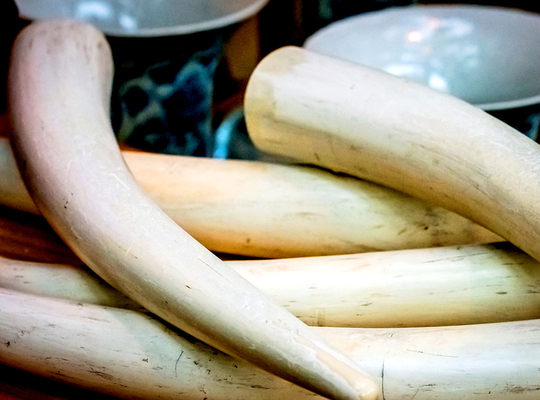You are here
Leader in the fight against the trade in ivory

Belgium is becoming one of the leaders in the international fight against the trade in illegal ivory. On Tuesday, the competent parliamentary committee unanimously approved the ivory law of our N-VA MPs. An elephant dies every 15 minutes. This means that every year, up to 30,000 elephants die for their ivory. As a result, the elephant could be extinct within 20 years. Let us not be the generation that wipes out this magnificent giant.
With the bill, Belgium is taking ambitious steps in the fight against the trade in illegal ivory. The penalties for ivory smuggling are increasing and, except for a few very strictly controlled exceptions, the import and export of ivory will be banned. In addition, trade in both raw and processed ivory will be prohibited, as will the trade in ivory contained in other objects.
Front for criminal organisations
The aim is not to make the owners of ivory feel guilty, or to impose excessive restrictions on the sale of ivory, but rather to ensure that Belgian ivory and Belgian certificates can no longer be used by criminal organisations as a front for the international trade in illegal ivory. The poaching of elephants undermines the economy in the African countries in question, and it generates billions for international criminal and terrorist organisations.
International fight
At the start of the 19th century, there were 26 million elephants. At the start of the 20th century, 10 million were left. Today, there are fewer than 500,000 elephants remaining. In the meantime, a great deal has been undertaken on the international stage to stop the ivory trade and save the elephant. The United Kingdom has introduced an almost total ban, and in China, the United States, France and the Netherlands, the import, export and internal trade in ivory have been massively restricted. In the ivory centres of Taiwan and Hong Kong, the trade will be banned, and Singapore will most probably follow suit in the near future.
Europe as a hub
Today, Europe is a large exporter of ivory, due among other things to all the “antique” ivory dating from before 1947 that is circulating there without any controls under the “antique exception”. The export of “legal” European ivory stimulates the demand in Asia, also for illegal ivory, and often forms a front for the trade in illegal ivory. For many years now, African countries have been asking Europe to shut down its internal ivory market, with little success. “Apparently, Europe is still playing a role as a hub for illegal ivory. This has to stop now,” says the N-VA in denunciation of the ambiguous attitude of the European Union.
In Europe, the N-VA is calling for among other things the abolition of the European “antique exception”, carbon dating for processed ivory and objects containing more than 20% ivory, a permanent ban on import and export of raw ivory in the European Union, a ban on the trade in raw ivory and a ban on the trade in objects made from or containing ivory which date from after the entry into force of the CITES convention on 1 July 1975.

